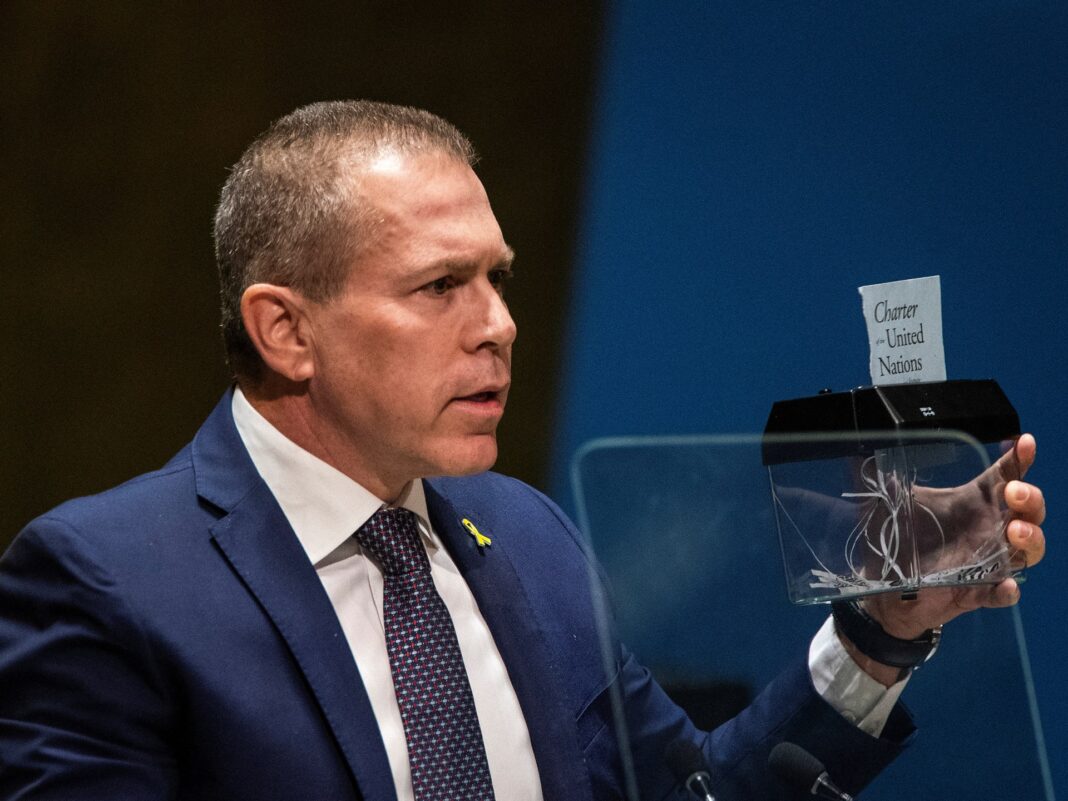The exceptional immunity that Israel has enjoyed for decades has placed international law and its institutions at a knife’s edge. Israel has killed UN workers, banned UNRWA, barred UN representatives from entry, and repeatedly insulted the UN and its officials.
Successive Israeli governments and their allies have also used all means possible to exert pressure on the International Criminal Court (ICC) not to investigate Israeli crimes – from direct threats of physical violence to sanctions and defamation. Attacks on the court have only intensified after it issued arrest warrants for Prime Minister Benjamin Netanyahu and former Defence Minister Yoav Gallant.
US President Donald Trump – an avid Israel supporter – has already signed an executive order reintroducing sanctions on ICC staff members. This is on top of other decisions he has made – including the US withdrawal from the Paris Climate Agreement and the World Health Organization – that constitute a direct assault on international multilateralism. On Tuesday, the US president flaunted his complete disregard for international law by declaring his intention to “take over” Gaza and “own it”.
All of these developments raise questions about whether the current global system led by the UN is beyond salvation.
Despite being created to “save succeeding generations from the scourge of war” in 1945, the UN has largely failed to prevent and stop conflicts for decades. Its creation ushered in an era of “peace for some” – peace for economically advanced states who engage in proxy wars in previously colonised states. So, do we give up on the idea of an international legal order altogether?
As we face the imminent danger of climate change and the rapid escalation of militarisation, it is clear that we do need a system which unites people under the ideal of justice. An international legal order that does not favour the powerful has already been proposed by various thinkers.
For example, prominent Chilean legal scholar Alejandro Alvarez proposed a “new international law” some 70 years ago. During his tenure (1946-1955) as a judge at the International Court of Justice, he argued that the European legal tradition, on which much of international law was based on, was inadequate to address legal questions in places like the Americas.
In a series of dissenting opinions in cases he deliberated on, Alvarez called for a “new international law” which accommodated the particular historical moment of the decolonisation across the world and reflected the interests and positions of decolonised states.
There was a clear attempt at that time by states of the Global South to claim international law to its benefit. Nevertheless, economically advanced states used their influence to eradicate such attempts.
We are now at a historic juncture where these efforts must be renewed if the idea of an international legal order is to survive. Action on Palestine can be the driver, as the genocide in Gaza is emblematic of larger patterns of domination and exploitation which define the current world system.
Already there are efforts by Global South states to exclude Israel from the United Nations. A petition signed by 500 legal scholars has also called on the UN General Assembly to unseat Israel in order to preserve its legitimacy.
In response, the US Congress sent a letter to the UN Secretary Antonio Guterres threatening to withdraw US funding if such a vote were to go ahead. While the power of the US lobby at the UN is no secret, a public threat to withdraw funds from the UN if it carries out its normal functions, is a form of economic coercion that publicly undermines the authority of the institution and the premises of international law.
If the US decides to cut funding to all of the UN, then there is a clear response – move the UN outside of the US and fortress Europe to somewhere in the Global South. Relocating the UN Headquarters out of New York would drastically cut costs, promote Global South support for it, and enable its stronger participation. It would do away with the dilemma of an international legal institution headquartered in a state that has proven to be the most consistent perpetrator of the crimes that the institution was created to prevent.
On an institutional level, history clearly demonstrates the need to abolish institutional structures that enshrine imperial power, such as the UN Security Council, the International Monetary Fund, and the World Bank. Calls for the abolition of these institutions were spearheaded by leading figures of the decolonisation movement like Thomas Sankara and Amilcar Cabral. As platforms for Global South voices, the UN General Assembly and the International Court of Justice must be endowed with more power – this point was repeatedly asserted by the Algerian Judge Mohammad Bedjaoui. Further, this can be a moment of rapid international law-making which builds on the historical efforts to create a new international legal order. Pacific islands are already challenging the limitations of international law by asking the ICJ to role on state responsibility towards climate change.
Progressive International, a coalition of progressive organisations from around the world, has recently sought to revive some past efforts by launching a project to develop a framework for a new international economic order. There is power in the unity of voices, and people of the Global South are united in their experience of economic and physical domination and subjugation. For such change to happen, the political tides need to align – even if only for a brief moment.
The current moment of genocide, neocolonialism, climate crisis and sickening impunity imposes on us the duty to reimagine the status quo. Cynicism is something we cannot afford. We need to start laying down the foundation of a new international legal system that finds virtue in justice rather than power.
The views expressed in this article are the author’s own and do not necessarily reflect Al Jazeera’s editorial stance.


